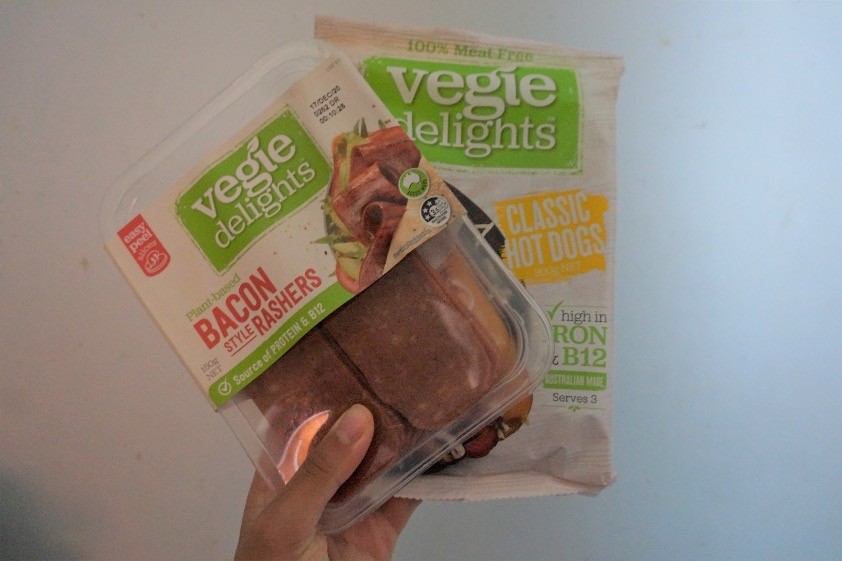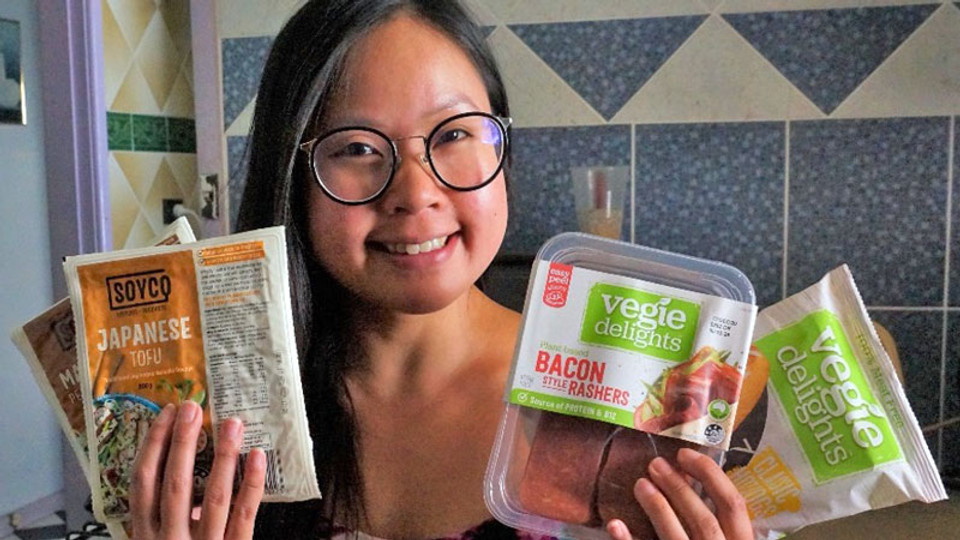
1. Textured vegetable protein (TVP) or textured soy protein
TVP is a new vegan’s best friend! It is extremely high in protein and soaks up the flavours of the liquid, broth or sauce that you cook it in. It’s an easy and healthy substitute for red meat. Unlike red meat, it’s extremely low in saturated fat with only 1.8g per 100g. TVP is also very low in fat because the fat is removed during production.
It’s made from soybeans and is often used in vegetarian patties and sausages.
I like to use TVP in tomato-based pasta dishes and it mimics the texture of ground beef mince well. There is definitely a weird aftertaste that no amount of pasta sauce can hide.
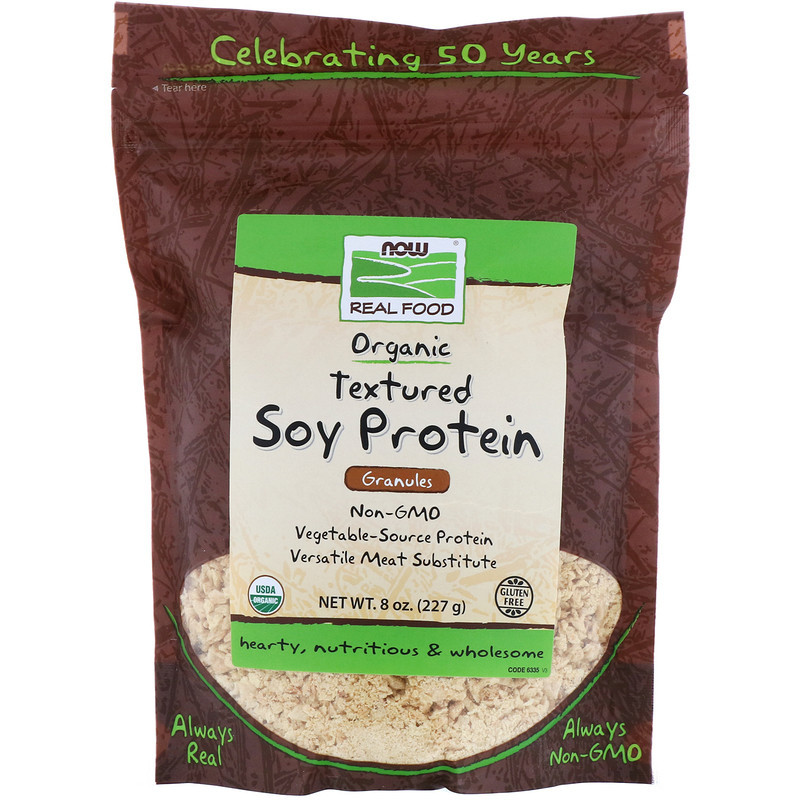
2. Tofu
Tofu comes in all shapes and sizes; firm, medium, soft, silky. They can also come plain or pre-marinated. My absolute favourite would be Soyco’s Teriyaki Tofu, paired with steamed green beans and brown rice for the perfect lazy day dinner.
Firm tofu (pressed to remove some of the water) is the best for stir-frying, baking or grilling because it doesn’t crumble and fall apart. Soft or silky versions work perfectly for soups and I often used them when making miso soup or hot pot.
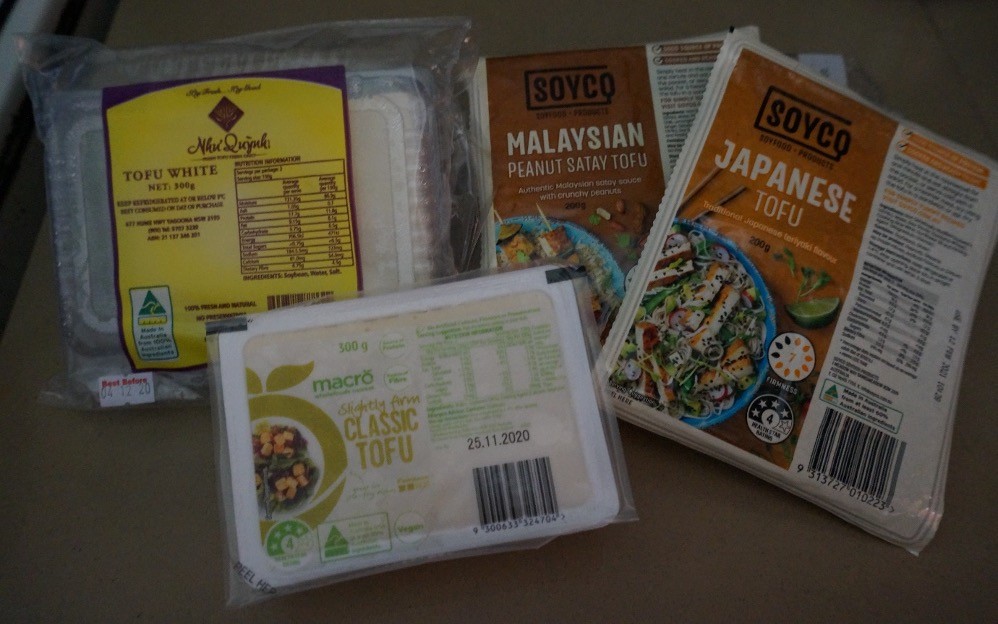
3. Seitan
It is an underrated gem made from wheat gluten. Although it is derived from wheat, it’s low in carbohydrate, low in fat and high in protein.
While tofu gets all the credit for being a vegan-friendly, lean protein source, seitan is actually higher in protein and lower in fat than tofu. In my humble opinion, it tastes best when lightly pan-fried when it’s crispy and chewy. Seitan doesn’t quite absorb flavours as well as tofu but is still a great alternative.
It’s likely you’ve already tried seitan as it’s often used as the basis for other products in the supermarket including plant-based deli slices. If you’re searching for it in the supermarket, I’ll save you an awkward conversation; it’s pronounced “Say-Tan” and not “Satan”.
Very rarely does seitan make an appearance in my pantry, I’m less familiar with cooking it than tofu. That being said, I have eaten it since I was young in vegetarian stir-fries with a lot of lemongrass.
4. Edamame
High protein and delicious snacks are hard to come by. One cup of edamame has 17g of protein and has all the essential amino acids. Another effortless protein source that can be steamed, roasted or popped in the air-fryer. It’s a relatively cheap protein source that you can find shelled and frozen in most major supermarkets and Asian grocery stores.
5. Legumes + legume pasta
Both legumes and legume pasta are a staple in my household and on my camping trips. It has double the amount of protein and fibre compared to regular pasta. The only downfall is it takes longer to cook too, but some things are worth waiting for. I swap between Barilla’s chickpea pasta and San Remo’s pulse pasta made from peas, lentils, chickpeas and borlotti beans.
6. Nutritional yeast – also known as Nooch
The key ingredient for every vegan cheese recipe due to its cheesy, nutty flavour. It can also be used as a low-salt way to season pasta, starchy vegetables, and even popcorn. It’s high in B-vitamins and antioxidants. In particular, it contains the antioxidant glutathione which prevent cell damage. Not to be confused with brewers’ yeast that is very bitter!
Like edamame, nutritional yeast is a complete protein and has all the essential amino acids. Nutritional yeast can come unfortified or fortified in B12. If you are vegetarian or vegan, I would aim to get a fortified brand because B12 is predominantly found in animal-based products.
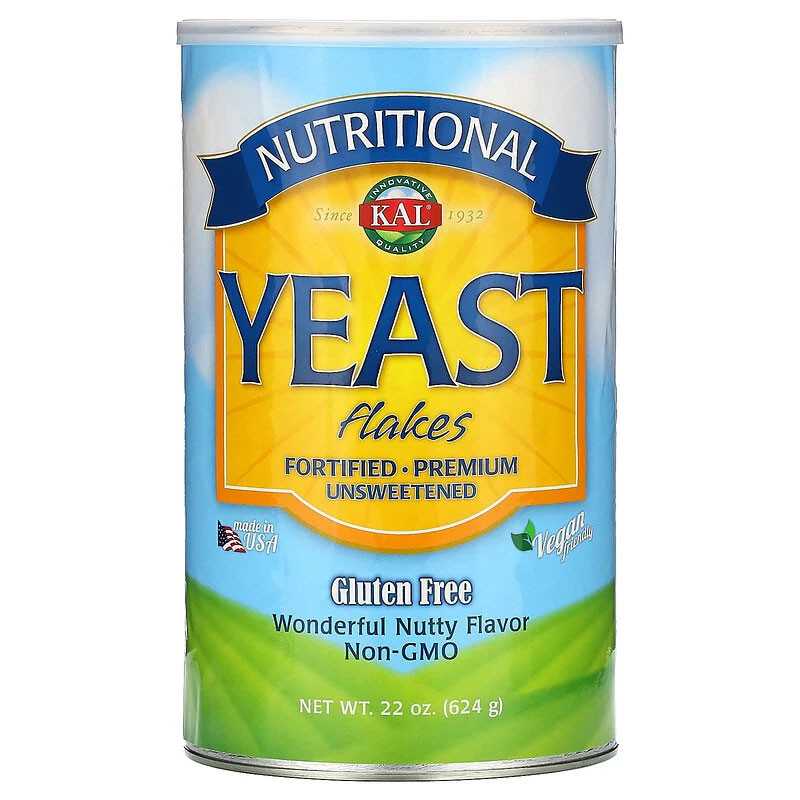
Alternatively, if you eat a vegan diet and do not regularly consume B12 fortified products, B12 supplements can help prevent pernicious anaemia. Symptoms of a B12 deficiency include low energy, tiredness, shortness of breath, pale skin and heart palpitations.
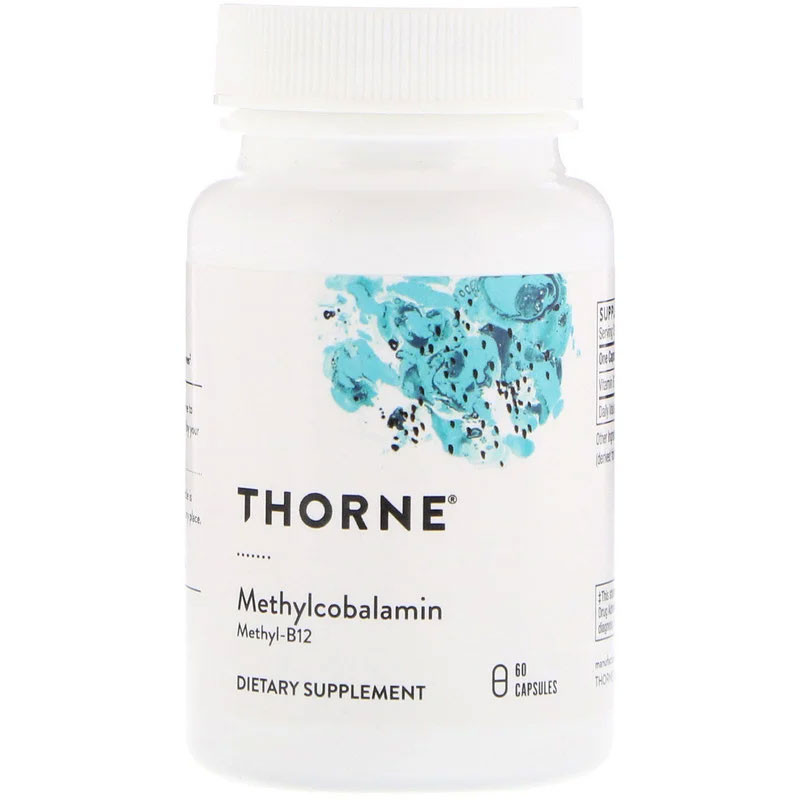
7. Nuts and seeds, nut butters
A handful of nuts and seeds is the perfect snack to provide a protein boost and a mixture of monounsaturated and polyunsaturated fats. These healthy fats are important in protecting your heart against heart disease by reducing total cholesterol levels and blood pressure. Whilst nut butters are mainly filled with healthy fats, they can provide some protein. When choosing nut butters, I search for low sugar (less than 5g of sugar per 100g). While peanut butter is an affordable classic, the more nuts and seeds the better.
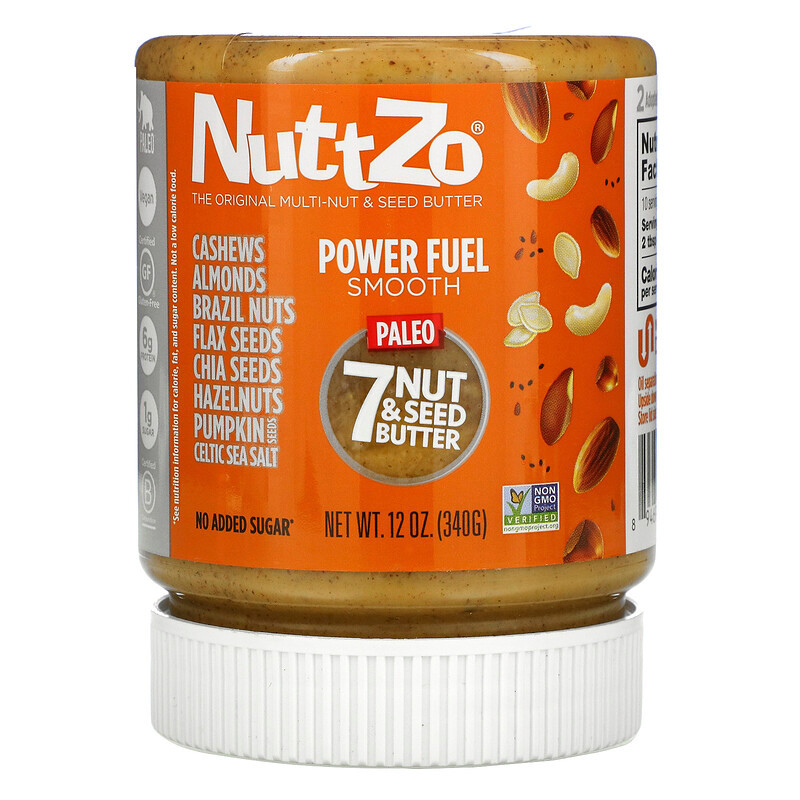
8. Tempeh
If I’m being completely honest, I have a hate-love relationship with tempeh. My gut loves it and my tastebuds hate it. It is considered a fermented food which means that it feeds the good bacteria in your gut. Don’t worry, I haven’t given up on tempeh just yet. I’m willing to give it another go, but until then I’ll keep my gut happy by eating a wide range of fruit, vegetables and legumes.
9. Protein powders: pea and rice mixture
While it’s smart to focus on food first to get adequate protein, protein powders can be helpful when total protein requirements are high or when struggling to hit enough protein on a plant-based diet. When looking for a vegan protein powder, it’s important to aim for one that has all the essential amino acids and adequate leucine. I recommend going for one that has a mixture of brown rice and pea protein as that results in a complete protein (all essential amino acids present). Leucine is an amino acid that is important for maximising muscle synthesis. Research shows that 3g of leucine or ~0.05g leucine/kg bodyweight at each meal, multiple times a day, is helpful in maximising muscle protein synthesis. [1]
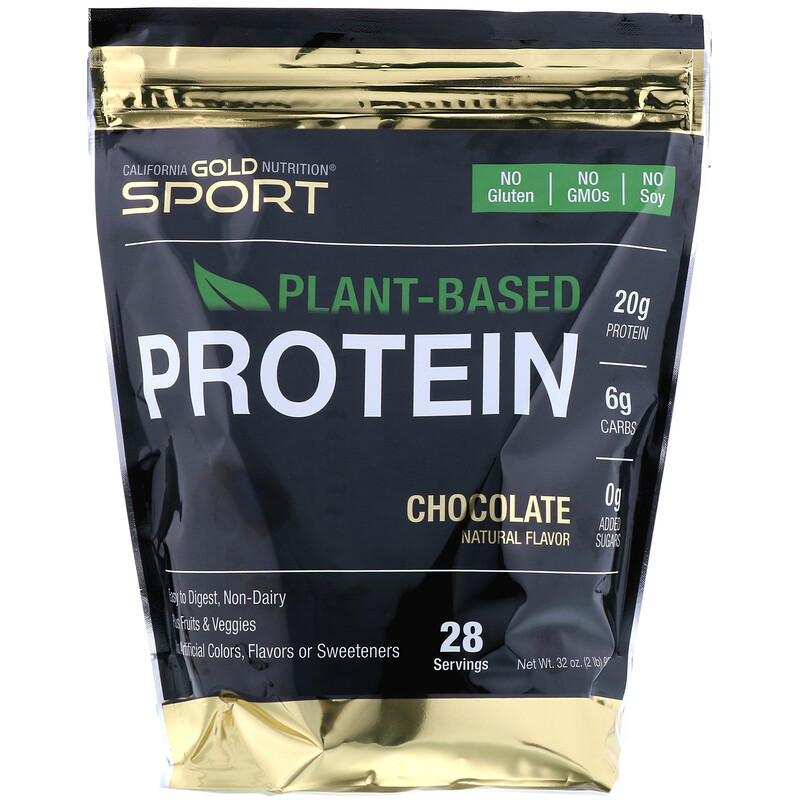
Since it is slightly lower in leucine and protein than whey protein isolate, I would suggest going for 1.5-2 scoops if you’re hoping to replace a whey-based protein.
10. Mock meats e.g. Veggie sausages, beyond meat, quorn, gardein
Plant-based burgers, sausages, deli slices, nuggets and even fishless fillets are very popular and can be helpful in helping some make a smoother transition into a vegetarian or vegan diet. It’s important to remember that vegan options are not necessarily healthy and may contain high levels of sodium and a lot of additives and preservatives. Mock meats can definitely be a good source of protein and are often B12 fortified, however, I try not to rely on it as an everyday food.
